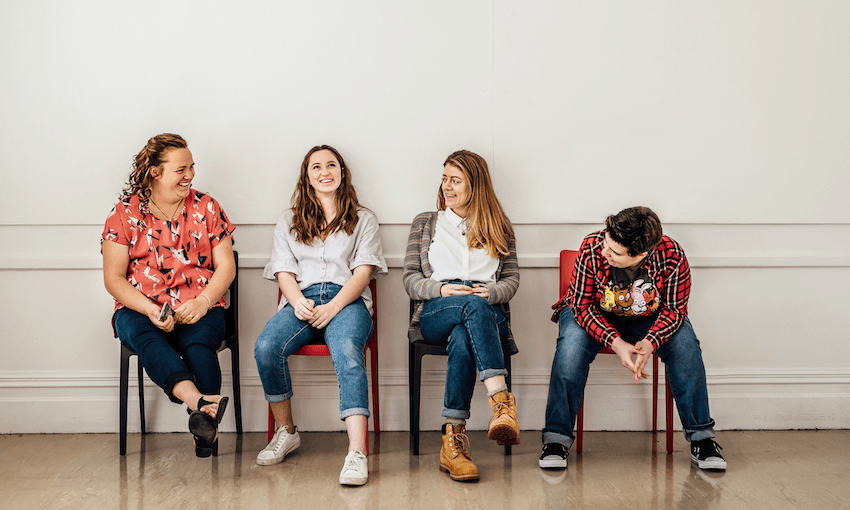A play teaching teens about consent and sexual harassment opens in Wellington this week, followed by Auckland next month. Co-creator Karin McCracken talks about why the show was necessary, and the generationally unique struggles kids face today.
The current model of health education in New Zealand allows parents to opt their kids out of sex education. Karin McCracken has worked in sexual abuse prevention for a number of years and wants parents to understand the importance of allowing their kids the opportunity to learn about these hard topics.
Her play YES YES YES is opening in Wellington this week and Auckland in June, aiming to teach teens the things they may be missing out on elsewhere.
The performance has been in the works since June 2018, and McCracken says the process of creating it involved talking to many school groups about their experiences with dating, sex and consent.
“I learnt a lot from them, it’s so totally different from when I was that age, but saying that, the central things are the same. There’s always a fear of rejection and confusion around what to do when you’re dating and in those situations.”
McCracken was the lead in 2017 play Jane Doe, created by Eleanor Bishop, which drew inspiration from the representation of rape culture that performance showed. But for YES YES YES, Bishop and McCracken have taken a strengths-based approach to make it appropriate for the younger age group.
So far it’s been received well by the teens who’ve seen it, and McCracken says it’s necessary to make consent and sex education appealing to youth if you want them to pay attention.
“You can always expect a varied response because young people seem to be more honest, or maybe they’re just more direct with their honesty. There’s a poll on a projected screen through the performance that the students can send their feedback to and we get really varied messages, from ‘this is really similar to me and a situation I was in,’ to ‘I didn’t know about any of this’.”
While much of the conversation around consent hasn’t changed in years, young people now are facing one key difference to those growing up 10 years ago: social media.
While McCracken was taught about consent by learning about physical traits and reading body language, social media has changed the landscape for consent education.
“Students were saying that [social media] made them feel distanced and connected at the same time, so it’s a confusing aspect of life that they’re dealing with on top of everything else. Consent is traditionally about in-person communication, we’re taught about body language, pausing, eye contact, all of these physical things, but it’s hard to talk about this stuff when it’s online.
“How can we discern cues over messages when it’s so easy to misinterpret tone or hide reactions? How do we equip ourselves with the skills to navigate relationships without physical things to fall back on?”
Consent is a relatively simple topic but carries significant threats if it isn’t treated seriously or taught well. However, it’s not all about sex and dating, insists McCracken.
“We need to be teaching young people about consent from as soon as they can talk, because consent isn’t just about sex, it’s not just about preventing
Students aren’t the only ones responding well to the themes presented in the play. McCracken says the response from teachers has also confirmed the importance of her work.
“It’s sparked conversation in class, teachers are really positive about the show, and there’s a sense of relief because consent education in this form is a resource they may not have.
YES YES YES opens in Wellington’s BATS Theatre on May 28, and in Auckland on June 18.

